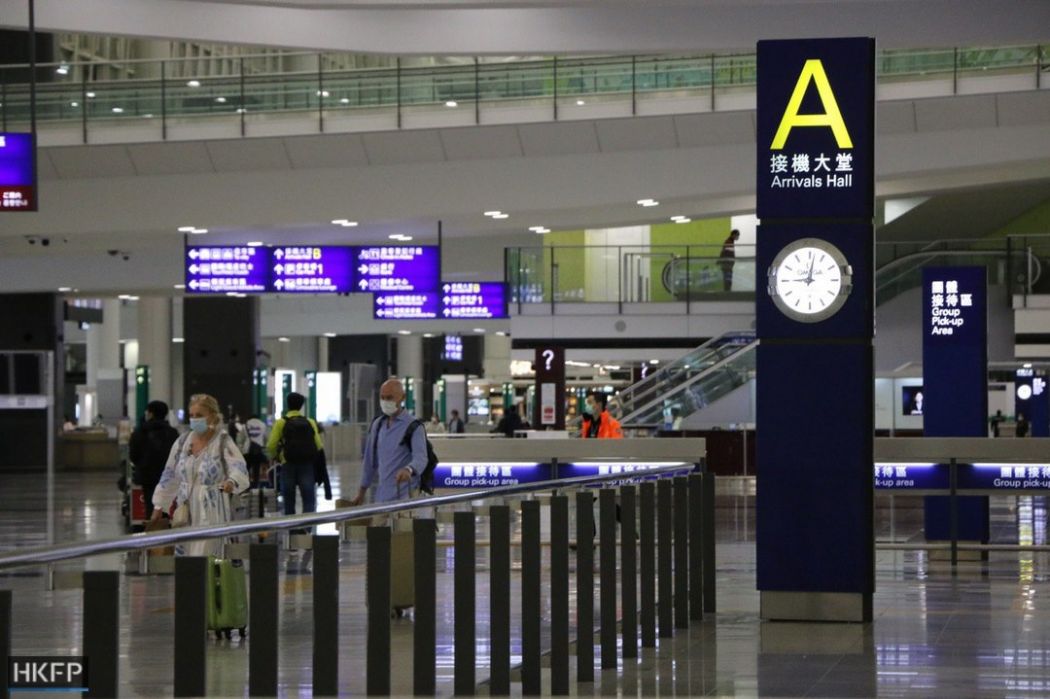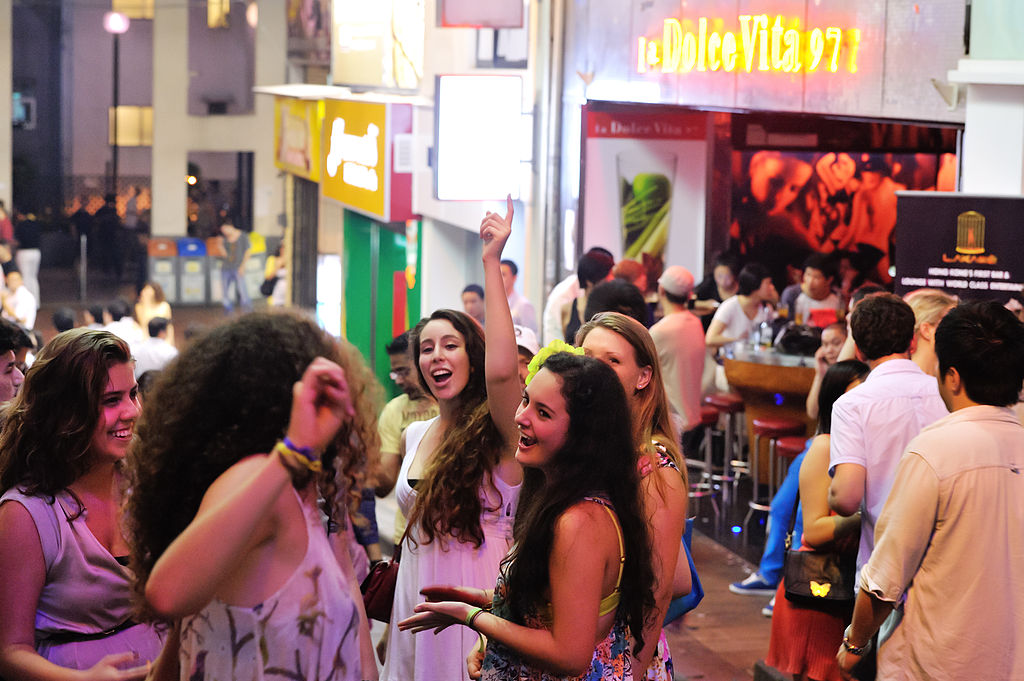By Rose Troup Buchanan
As Hong Kong suffers a new spike in coronavirus infections, anger and recrimination have broken out among the city’s expatriates over whether enough of their well-heeled community is taking the outbreak seriously enough.
Despite its proximity to the Chinese mainland, the financial hub has managed to stave off a runaway outbreak of the deadly virus partly thanks to the public overwhelmingly embracing face masks, hand hygiene and social distancing.

Ahead of the city’s decision on Monday to ban non-residents from entering for two weeks, officials had reported the number of cases had more than doubled to 318 infections after locals and foreign residents flooded back once the pandemic spread to Europe and North America.
The vast majority of new infections have been among Hong Kongers, many students fleeing schools and universities overseas.
But the new spike coincided with local media publishing photos of bars and restaurants still packed with customers, especially in areas popular with those working for blue-chip companies.
That sparked fury among many who battened down the hatches during the initial outbreak and feared the hard work could come undone.

Last week Hong Kong ordered 14-days of self-quarantine for all overseas arrivals, but many were already isolating – or thought others should be more pro-active.
Gary Stokes, owner of Hemingway’s bar in the wealthy enclave of Discovery Bay, was furious to see some regulars returning from Europe believing they did not need to self-isolate.
“They have this attitude of ‘Well, I’m ok, so not sure I need to.’ That to me is really dangerous,” he told AFP.
After one customer bragged he should be in self-isolation, Stokes posted a warning on Facebook promising to alert police to anyone breaching the guidelines.
“These expats decided to run when they didn’t like what was going on in Hong Kong, and then when it ends up in their countries they run back again,” he said.

“They’re not all bad, but there are some bad cookies among them.”
Overzealous?
Foreigners make up some nine per cent of Hong Kong’s seven million residents.
Not all are wealthy or work white-collar jobs, but in a densely packed city with entrenched inequality, Western expats in particular often run the risk of coming across as out of touch.
Hong Kongers have largely embraced ubiquitous mask-wearing, including foreign residents.
But generally, those on the street eschewing masks tend to be noticeably Western.
Last week an Apple Daily front-page photograph of a big group of foreigners drinking in the open while sitting shoulder-to-shoulder caused outrage on social media.

But some feel the anti-expat rhetoric has gone too far.
“People are getting, in my opinion, overzealous, I think,” said Kate Mercurio, 40, a New Zealander who has lived in Hong Kong for more than a decade and returned from a trip to Doha shortly before her adopted hometown ordered all new arrivals to self-quarantine.
“It’s all because they are scared, and it is fear-based, and it is expressed as anger,” she said, adding she was nonetheless self-isolating at home.
Last week, a slew of infections was found among patients who had all been out in Lan Kwai Fong, the city’s most famous nightclub street, prompting calls last week to shutter bars and restaurants entirely.
On Monday, chief executive Carrie Lam announced the city’s restaurants and bars were banned from selling booze but will, for now, be allowed to remain open.

Elizabeth Loennborn, a 44-year-old Texan who has lived in Hong Kong for nine years, says she has little time for people thinking they don’t need to distance themselves socially.
Her son has a lung condition that might make him especially vulnerable to a COVID-19 infection.
“If you don’t know if you are a transmission vector, and you are out, and you are not taking any precautions, in my book you are culpable for the future deaths in Hong Kong,” she said.
“I don’t think it is too much to ask somebody to put a pin in their social life for two weeks, and stay in home quarantine if it is going to save a life.”
